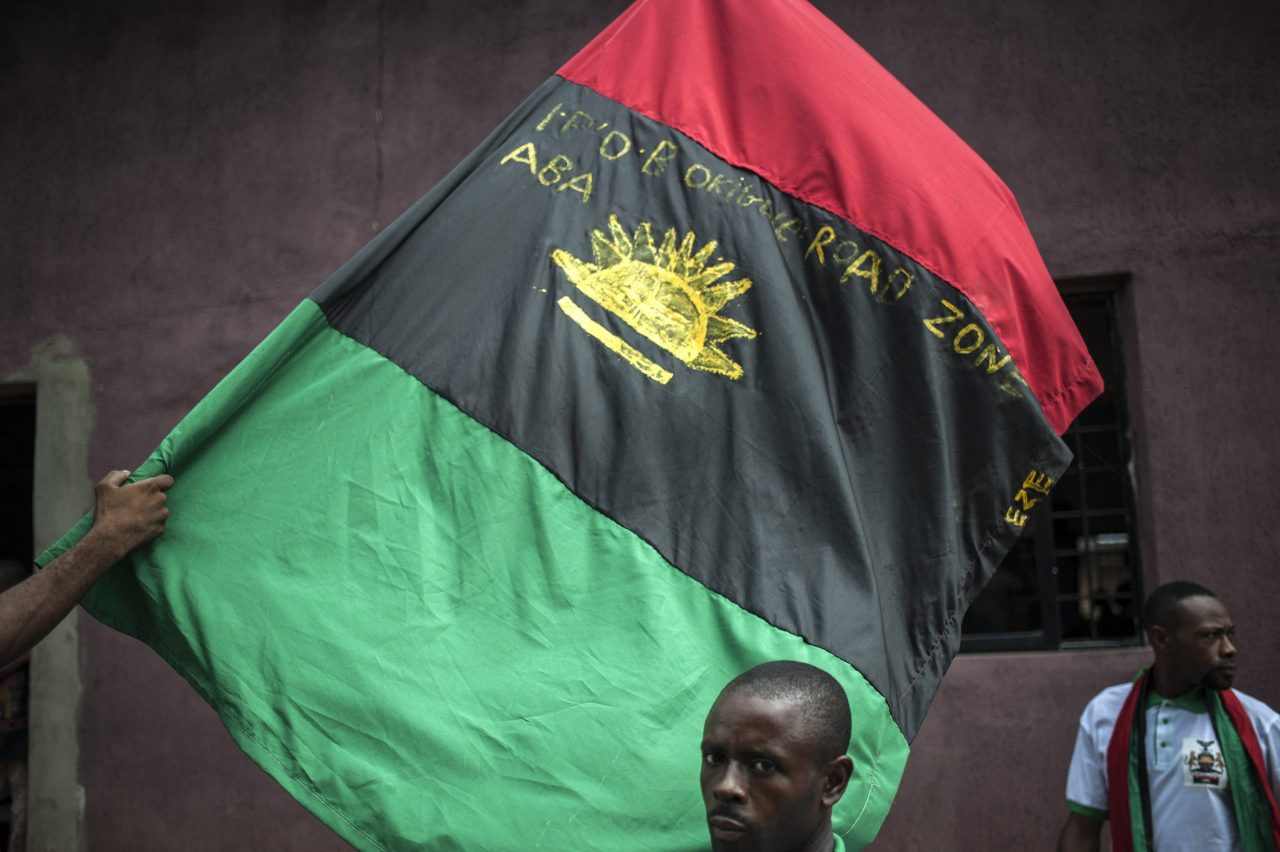
The economic landscape of Nigeria’s South Eastern states—Abia, Imo, Ebonyi, Enugu, and Anambra—has been significantly disrupted by the ongoing Biafra agitation. The movement, spearheaded by the Indigenous People of Biafra (IPOB) and its armed wing, the Eastern Security Network (ESN), has declared a weekly “sit-at-home” order every Monday. Despite being proscribed by the federal government, IPOB continues to enforce this order, leading to severe economic and social repercussions across the region.
One of the most immediate and visible impacts of the sit-at-home mandate is the paralysis of economic activities. Mondays, typically bustling with commercial activities, now witness deserted streets, closed businesses, and an eerie silence. This enforced idleness has translated into substantial financial losses. Small and medium-sized enterprises, which form the backbone of the region’s economy, are particularly affected. Marketplaces, shops, and businesses remain shut, depriving traders and entrepreneurs of crucial income. The hospitality sector, including hotels and restaurants, also suffers, with significant drops in patronage.
The manufacturing sector is not spared either. Factories that would typically operate around the clock to meet production targets are forced to halt operations, leading to reduced output and potential job losses. This disruption has created a ripple effect, affecting supply chains and reducing the overall economic productivity of the region.
Moreover, the agricultural sector, which is a critical component of the South Eastern economy, has been destabilized. Farmers are unable to transport their produce to markets, leading to food wastage and loss of income. This disruption in the food supply chain not only affects the local economy but also exacerbates food insecurity in a region that relies heavily on agriculture.
The insecurity bred by the agitation has also taken a significant toll. Over the past years, more than a thousand lives, including those of soldiers and police officers, have been lost. The ESN has been accused of targeting security personnel, leading to an atmosphere of fear and tension. This has strained the relationship between the communities and law enforcement agencies, further complicating efforts to restore peace and order.
In addition to the human cost, the security situation has driven many businessmen out of the region. The fear of abduction, extortion, and violence has forced entrepreneurs to relocate their businesses to safer areas. This exodus has resulted in a brain drain, where the region loses not only investment but also valuable human capital. The long-term implications of this trend could be devastating, potentially stunting economic growth and development for years to come.
The education sector has also been affected. Students and teachers are often unable to attend school on Mondays, disrupting the academic calendar and hindering educational progress. This inconsistency undermines the quality of education and could have lasting negative effects on the future workforce of the region.
As an English and Literature graduate from Nnamdi Azikiwe University and a teacher, I have witnessed firsthand the impact on educational institutions. Schools struggle to maintain regular schedules, and the constant interruptions make it difficult to achieve educational objectives. The psychological impact on students, who must navigate the fear and uncertainty of these disruptions, cannot be overstated.
This group has made life unbearable even though they claim to be fighting to bring Biafra. Allegations have surfaced that IPOB and ESN are involved in kidnappings and killings, purportedly to pressure the federal government into releasing their leader, Mazi Nnamdi Kanu, who has been detained by the Department of State Services (DSS) for years, despite court orders for his release. Reports indicate that people in villages are receiving letters, allegedly from IPOB, demanding levies.
According to sources, IPOB has taken control of entire communities in Arondizuogu and parts of Okigwe, blending with civilians and complicating security operations, which often result in innocent casualties. There are also allegations that some unscrupulous wealthy individuals are sponsoring these groups, further exacerbating the situation.
Given the complexity and severity of the situation, a multifaceted approach is required to restore stability and prosperity to the South East. Dialogue between the federal government and IPOB could pave the way for a peaceful resolution. Economic incentives and investments in the region could help mitigate some of the economic damage and provide alternative means of livelihood. Enhancing security measures and rebuilding trust between communities and law enforcement agencies are also crucial steps toward restoring stability.
Moreover, addressing the underlying grievances and engaging in constructive dialogue with the leaders of IPOB, including considering the release of Mazi Nnamdi Kanu, could help de-escalate the tensions. The federal government should prioritize these measures to foster a more peaceful and economically viable environment in the South East.
In conclusion, the Biafra agitation and the enforced sit-at-home orders have crippled the economy of the South Eastern states. The toll on businesses, agriculture, education, and human lives is profound. Without concerted efforts to address the underlying issues and restore peace, the region risks further economic decline and social unrest. It is imperative for all stakeholders to come together to find a lasting solution that will bring prosperity and stability to the South East.
In another related article, IPOB leader Nnamdi Kanu fails to regain freedom at Supreme Court
Follow our socials Whatsapp, Facebook, Instagram, Twitter, and Google News.


![IPOB leader Nnamdi Kanu fails to regain freedom at Supreme Court 2 [FILES] IPOB leader Nnamdi Kanu in court](https://www.afriupdate.com/wp-content/uploads/2022/10/Nnamdi-Kanu-in-Court.jpg)

![Kanu may die in DSS custody, Ozekhome fears, S’Court adjourns case to Sept 14 5 [FILES] Mike Ozekhome](https://www.afriupdate.com/wp-content/uploads/2023/05/Mike-Ozekhome-1062x598-1-120x86.jpg)


